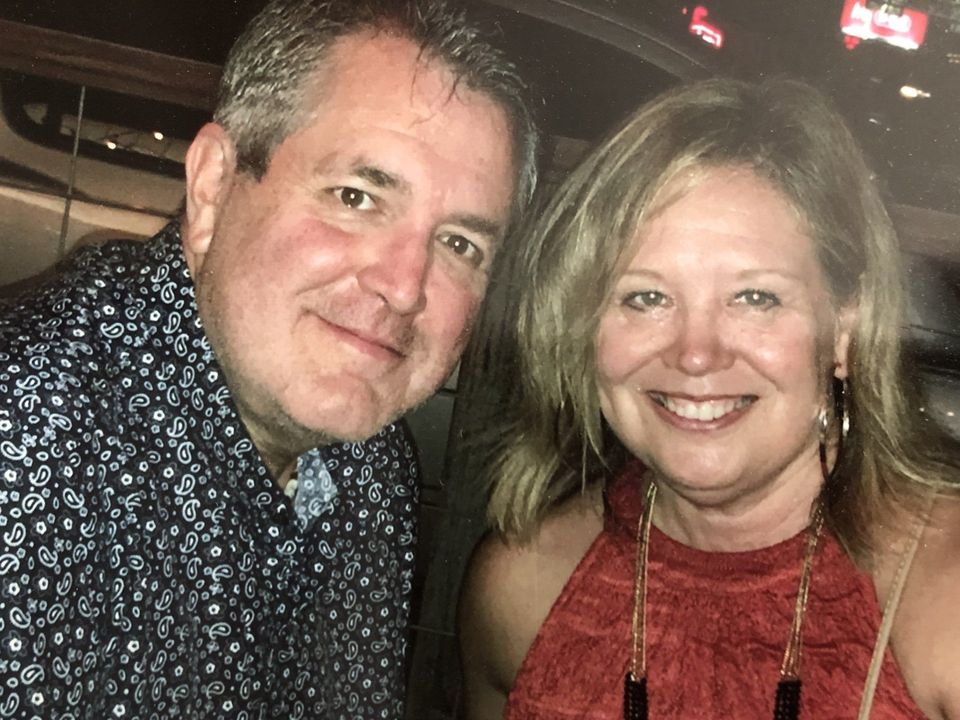Advocate Spotlight: Janice and Jeffrey Ivey
January Advocate Interview

1. How long have you been an Advocate and when did you realize you wanted to become one?
We became advocates in May 2019 after completing our training. We had been looking for an opportunity to serve our community, now that our kids are grown. We can’t think of anything more important than working towards being a positive influence in the lives of children who have been in terrible situations. After getting information on CASA and attending the first training class, we knew we had found the right organization.
2. What is the most rewarding aspect of being an Advocate?
It’s seeing the difference that your efforts can make in the lives of the children you’re working with. Working with CPS, their schools, and the foster parents on plans and strategies so they can learn and prosper is extremely rewarding. And identifying opportunities for them-learning about their prior family experiences prior to CPS custody and turning previously negative experiences into positive ones. The progress that the children are making in school, for example, is definitely rewarding, and learning about things they want to do. When a child opens up to you, you know you’ve gained their trust and few things are as satisfying as that.
3. If you could offer words of encouragement to your fellow and incoming Advocates, what would they be?
Develop a strong, positive relationship with your CPS caseworker. Realize that your CPS caseworker has multiple cases and doesn’t have a CASA on all of them, so any way you can help them out goes a long way. We would not have made the same progress without our caseworker’s assistance and guidance. Verify, verify, verify-verify everything you are told, by both the children and the parents. We’ve discovered huge inconsistencies between things the biological parents have reported and what the children themselves saw or experienced. And realize that little things that you might not think are important can be critically important to the development of the child. Never assume anything-one of our kids told us that she hadn’t gone to see Santa Claus before Christmas because “it costs money to do that”. Always look for successes to celebrate-whether it’s a grade at school, learning to read, riding a bike-remember that in many cases, children put into CPS care have never had that before. But most importantly, be present-parental visits, school events, etc.- and be there for your kids-the more they see you, the more comfortable they will be and the more confident they will become.

In November 2025, Child Protective Services received a referral involving two sisters, ages 13 and 14, who were found caring for themselves. Following the death of their father, the girls experienced ongoing abuse and neglect. They were living in unsafe and unsanitary conditions, frequently left alone without adequate food, functioning plumbing, or consistent supervision, and were exposed to strangers regularly coming in and out of the home. Shortly after removal, Tameka Woolfolk was appointed as the Advocate on the case. From the very beginning, Tameka became one of the few consistent and reliable adults in the girls’ lives. The children experienced and continue to endure placement changes. These frequent transitions created ongoing instability and further complicated the girls’ ability to heal and adjust. Throughout each move, Tameka remained steadily involved, working diligently to ensure that the children’s services and support continued without interruption. She supports the girls not only emotionally, but physically as well helping pack their belongings at each move, accompanying them during school tours, and remaining readily available whenever they need support. Neither child was initially aware that they had the right to speak directly with the judge. Tameka recognized the importance of their voices being heard and with the support of the Ad Litem, helped to facilitate their presence at court, requesting that the judge meet with the girls in a breakout room, so they could personally express their wishes, all with the department, CASA and the Ad Litem by their side. In addition, this case was referred to Collaborative Family Engagement (CFE). During CASA’s ongoing exploration for family connections alongside the Department, Tameka discovered the children’s father’s obituary. Through this discovery, it was learned that the girls’ father had served in the United States Army as a combat medic during the Vietnam War and later worked for 30 years in civil service. Tameka took the initiative to request documentation, including VA records and a death certificate, to determine whether the children might be eligible for survivor benefits. The obituary also revealed that the girls are two of fourteen siblings. While many of the siblings were unable to provide support, CASA and the Department were able to establish contact with one brother. Through Tameka’s strong collaborative relationship with the Department and the Attorney Ad Litem, a thoughtful and appropriate plan was developed to allow the girls to begin visits with their brother, his wife, and their cousins. Although this story is still unfolding, both girls know one unwavering belief, that no matter what comes next, they know that Miss Tameka will continue to stand beside them every step of the way.







